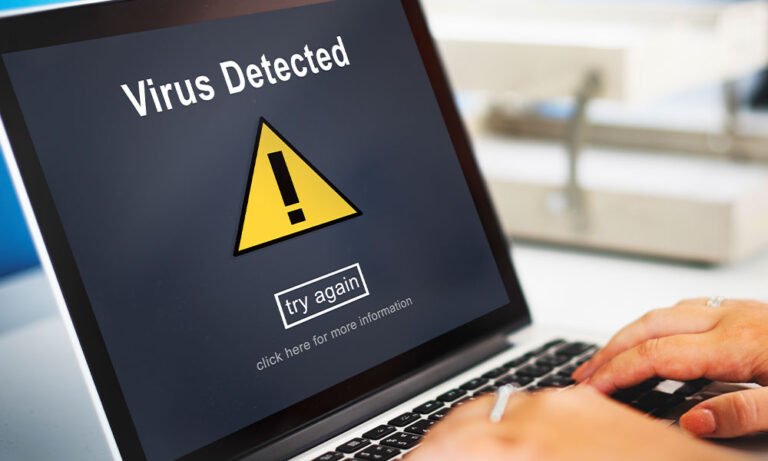Computer viruses are malicious software programs designed to infiltrate and compromise computer systems. They can cause various issues, such as data loss, system crashes, and unauthorized access to personal information. Understanding the common types of computer viruses and implementing preventive measures is essential to protect your computer and data from these threats. In this article, we will explore some of the most common computer viruses and provide effective strategies to prevent them.
Table of Contents
- Introduction
- Types of Computer Viruses
- Prevention Techniques
- Conclusion
1. Introduction
In today’s digital age, where computers play a vital role in our daily lives, the threat of computer viruses is a significant concern. These viruses can be transmitted through infected email attachments, malicious websites, compromised software, or removable storage devices. Once a computer is infected, viruses can replicate, spread, and cause significant damage to the system and the data it contains. By understanding the different types of computer viruses and implementing preventive measures, users can minimize the risk of infection and protect their valuable information.
2. Types of Computer Viruses
There are various types of computer viruses, each with its own characteristics and methods of propagation. Some of the most common types include:
a. Malware: Malware is a broad term that encompasses various types of malicious software, including viruses, worms, Trojans, and ransomware. Malware infects computers and performs unauthorized actions, such as stealing data, damaging files, or encrypting them until a ransom is paid.
b. Worms: Worms are self-replicating malware that spread from computer to computer without requiring user intervention. They exploit vulnerabilities in network services or operating systems to propagate and can cause network congestion and system slowdown.
c. Trojans: Trojans are malware disguised as legitimate software or files. Once installed, they can create backdoors, steal sensitive information, or allow remote control of the infected system.
d. Ransomware: Ransomware encrypts files on the infected computer and demands a ransom to provide the decryption key. It can lead to significant data loss and financial damage if the ransom is not paid.
e. Spyware: Spyware monitors and collects information about the user’s activities without their knowledge or consent. It can track keystrokes, capture screenshots, and steal personal information.
3. Prevention Techniques
Preventing computer viruses requires a combination of good security practices and reliable software solutions. Here are some effective prevention techniques:
a. Use Antivirus Software: Install reputable antivirus software and keep it updated. Antivirus programs can detect and remove known viruses, as well as provide real-time protection against new threats.
b. Keep Operating Systems and Software Updated: Regularly update your operating system, web browsers, and software applications to ensure you have the latest security patches. Software updates often include bug fixes and security enhancements that protect against known vulnerabilities.
c. Exercise Caution with Email Attachments and Links: Be cautious when opening email attachments or clicking on links, especially from unknown or suspicious sources. Scan email attachments with antivirus software before opening them.
d. Enable Firewall Protection: Enable and configure a firewall to monitor incoming and outgoing network traffic. Firewalls act as a barrier between your computer and the internet, preventing unauthorized access and blocking suspicious connections.
e. Practice Safe Browsing Habits: Be cautious when visiting websites and downloading files. Stick to reputable websites and avoid clicking on pop-up ads or downloading files from untrusted sources.
f. Use Strong and Unique Passwords: Create strong passwords for your online accounts and avoid reusing them across multiple platforms. Consider using a password manager to securely store and manage your passwords.
g. Regularly Back Up Your Data: Regularly back up your important files and data to an external storage device or cloud-based backup service. In the event of a virus infection or data loss, you can restore your files from the backup.
4. Conclusion
Computer viruses pose a significant threat to individuals and organizations alike. By understanding the different types of viruses and implementing preventive measures, users can significantly reduce the risk of infection and protect their valuable data. Utilize reliable antivirus software, keep your operating system and software up to date, exercise caution when handling email attachments and links, enable firewall protection, practice safe browsing habits, use strong and unique passwords, and regularly back up your data. By following these best practices, you can enhance your computer’s security and minimize the impact of potential virus attacks.
Frequently Asked Questions (FAQs)
Q1. What should I do if my computer gets infected with a virus? A1. If your computer gets infected with a virus, it’s important to take immediate action. Disconnect your computer from the internet to prevent further spread, run a full system scan using antivirus software, and follow the recommended removal steps provided by the antivirus program. If the virus has caused significant damage, consider seeking professional help to restore your system and recover your data.
Q2. Can I get a virus just by visiting a website? A2. While it’s less common, visiting a compromised or malicious website can potentially infect your computer with a virus or other malware. It’s important to practice safe browsing habits, avoid clicking on suspicious links or downloading files from untrusted sources, and keep your web browser up to date with the latest security patches.
Q3. Are free antivirus programs as effective as paid ones? A3. Both free and paid antivirus programs can provide effective protection against viruses. However, paid antivirus software often offers additional features such as real-time monitoring, advanced threat detection, and technical support. Assess your security needs and research reputable antivirus programs to choose the one that best suits your requirements and budget.
Q4. Should I enable automatic updates for my operating system and software? A4. Enabling automatic updates for your operating system and software is recommended. Automatic updates ensure that you receive the latest security patches and bug fixes promptly, reducing the risk of vulnerabilities being exploited by viruses and other malware. Regularly updating your software helps maintain a secure and protected computing environment.
Q5. Is it necessary to back up my data regularly if I have antivirus software? A5. Yes, it’s crucial to regularly back up your data, even if you have antivirus software installed. Antivirus software primarily focuses on detecting and removing viruses, but it cannot guarantee complete protection against all threats. Backing up your data provides an additional layer of security, allowing you to recover your files in case of data loss due to a virus infection, hardware failure, or other unforeseen circumstances.

